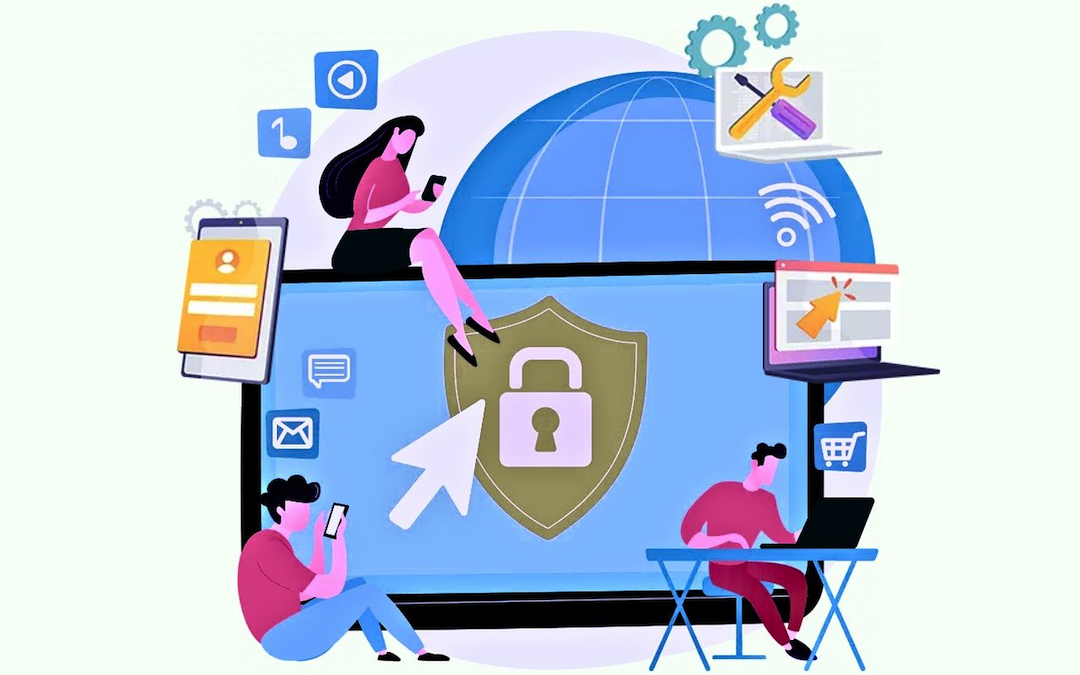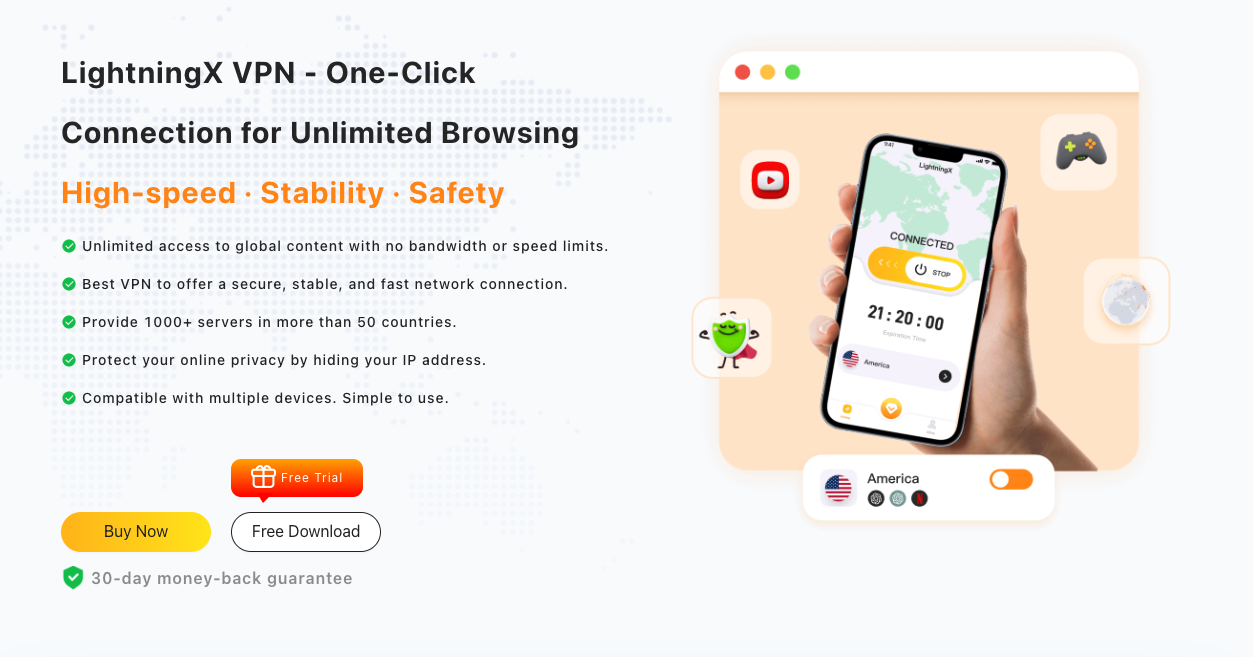
If you want to know what a VPN is, you are in the right place!
This article will answer all the information about VPNs for you and provide you with high-quality VPN services such as LightningX VPN, ExpressVPN, and NordVPN to name a few.
What is VPN?
A VPN means a Virtual Private Network. This tool creates a private network that protects users from external eyes. VPN private network browsing is beneficial when you are using public Wi-Fi or other unreliable sources to go online. An excellent VPN will conceal your internet traffic to hide your identity. As a result, third parties cannot spy on you online with the intention to steal information.
Furthermore, a VPN allows you to bypass geographical restrictions, enabling access to content and websites that may be blocked in your region. This is particularly useful for accessing streaming services, news sites, and social media platforms that are otherwise inaccessible due to local censorship. By using a VPN, you can maintain your online freedom and privacy, ensuring a more open and secure internet experience.
How does a VPN work?
A virtual private network will circumvent the usual internet access to your devices. It uses a configured server with remote access that is being supervised by the VPN private internet service. As a result, the data is only being exchanged on a private network. Moreover, the exchange of data is encrypted as well. In addition, the VPN will hide your IP address alongside your location and identity.
When you connect to a VPN, your device establishes a secure connection to a remote server operated by the VPN provider. This server acts as an intermediary between your device and the internet. Any data transmitted between your device and the VPN server is encrypted, ensuring that it remains private and secure from prying eyes. The VPN server then forwards your data to its final destination on the internet, making it appear as though the data originated from the VPN server rather than your device.
The Internal Workings of a VPN
Internet traffic consists of web searches, page visits, uploads, downloads, and links. The VPN will send the data packets to a private server instead of the internet service provider. As a result, the internet reads the source of the data as a virtual private network and not your device. A VPN will hide your IP address from the source before exchanging data packets with the internet. A VPN will also encrypt the data to conceal your identity. Now, internet service providers, hackers, and government agencies cannot spy on you while navigating the web.
Additionally, VPNs often use advanced encryption protocols such as OpenVPN, L2TP/IPsec, or WireGuard to ensure the highest level of security. These protocols create a secure "tunnel" through which your data travels, protecting it from interception and tampering. This process not only safeguards your personal information but also helps to maintain the integrity and confidentiality of your online activities.
What Does the VPN Conceal?
A VPN operates at the operating system level, redirecting your internet traffic through its own servers instead of those of your Internet Service Provider (ISP). This means the VPN manages your online traffic, web history, and physical location, keeping them hidden from the internet. When you access websites, their servers see the source as a proxy server provided by the VPN. As a result, website owners and other entities cannot gather information from your IP address. Using a VPN is one of the best ways to browse the internet anonymously.
Moreover, VPNs can mask your online activities from potential surveillance and data collection efforts by third parties. This includes preventing advertisers from tracking your browsing habits and tailoring targeted ads based on your online behavior. By anonymizing your internet connection, a VPN helps to maintain your privacy and protect your digital footprint from being exploited for commercial purposes.
Use A VPN for Your Computer and Phone

A VPN from LightningX creates a connection between the internet and the user that only you can supervise. The tool will hide your IP address and location. Moreover, it will protect your device from hackers and other malicious intruders. You can use a VPN to unlock regional and global content on different streaming platforms.
Conclusion
A VPN (Virtual Private Network) is an essential tool for ensuring your online privacy, security, and freedom. By encrypting your internet traffic and masking your IP address, a VPN protects you from potential surveillance, data collection, and cyber threats. It also allows you to bypass geographical restrictions, giving you access to content and websites that may otherwise be blocked in your region. Whether you are using public Wi-Fi or want to maintain anonymity online, a VPN offers a robust solution for a secure and unrestricted internet experience.
Share this post
Leave a comment
All comments are moderated. Spammy and bot submitted comments are deleted. Please submit the comments that are helpful to others, and we'll approve your comments. A comment that includes outbound link will only be approved if the content is relevant to the topic, and has some value to our readers.

Comments (0)
No comment